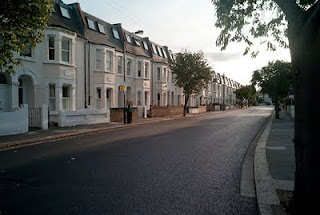 |
| Will all London streets be this empty in 2050? |
This idea is both reasonable and worthwhile. Eliminating traditionally powered cars - and replacing them with cars that use "cleaner" technologies - makes both environmental and economic sense, assuming of course that alternative energy approaches are fully realized. Electric cars are inherently clean and draw power from the electric grid, and ultimately power plants, which are far easier to "clean-up" then individual cars and trucks. Other technologies like hydrogen fuel cells promise even cleaner energy, but this technology has a long way to go before it is affordable and can be applied to personal transportation.
 |
| Electric cars - part of the future |
Now good idea or not, government plans do not always mean action, and the results of policies like these are often not what is intended. Further, 40 years is a long time, and who can say how the political, economic, and technological landscape will change between now and then. One thing I can promise - cars of some sort will by traveling the roads of Paris, London, Berlin, and other European cities from now until far into the future.
---
The flip side of the clean energy argument is a movement to actually reduce the amount of car and truck travel, usually expressed a vehicle miles traveled, or VMT. This is the official policy of the United States government. The idea behind reducing VMT is to reduce greenhouse gas emissions and oil consumption. That idea is flawed. It requires that people travel less, choose to live closer to work, consolidate trips, etc. It requires people to change behavior, a dubious prospect. Extensive car and truck use is interwoven with American society, nothing is likely to change that. A better approach to reducing the negative side effects of car and truck travel is to improve technology through cleaner burning engines, better fuel mileage, and cleaner technologies.
 |
| "These two lanes will take us anywhere" |
Unfortunately, lots of cars mean lots of traffic. Pay no mind to this as an environmental concern, technology will solve that dilemma. Instead it's an issue of economic value lost and quality of life degraded while stuck in traffic. Commuters in New York, Los Angeles, Chicago, Washington, D.C., and most other large metropolitan areas suffer through this reality many times a week. The annual Urban Mobility Report published by the Texas Transportation Institute makes for grim reading. Are there solutions to chronic congestion? Yes, perhaps, but speaking as a professional, this problem is one that will keep me busy for the rest of my career.
No comments:
Post a Comment